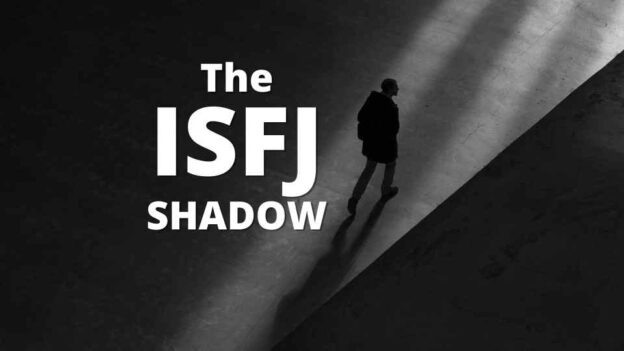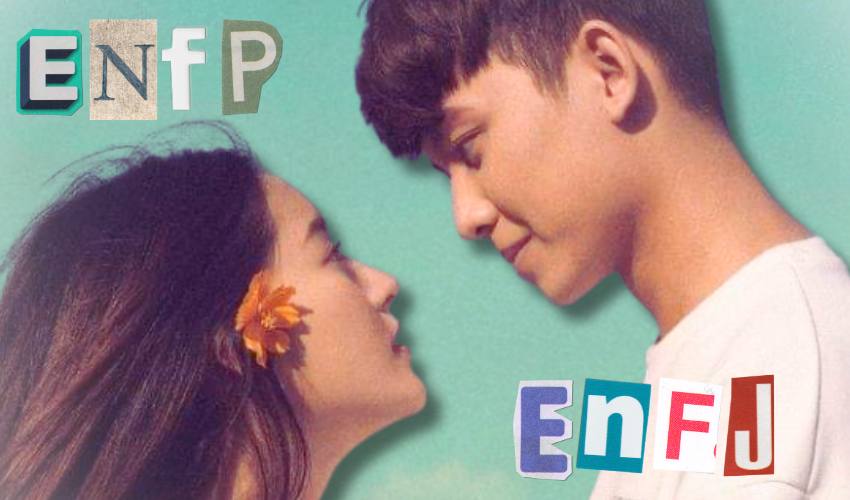The shadow is a concept introduced by Swiss psychologist Carl Jung. The shadow represents what Jung believed to be the unconscious and repressed aspects of our personality that operate beneath our conscious awareness. The shadow stands in contrast to the conscious ego represented by our Myers-Briggs personality type. Although the shadow can manifest in negative and destructive ways, when properly integrated with our personality, it can be harnessed to positive effect.
Jungian analyst, John Beebe later conceptualized the shadow in terms of cognitive functions not included in the personality type of our conscious ego. Therefore, each person has a shadow type composed of all the functions they ignore or don’t consciously utilize. In the case of ISFJ, those functions are extroverted sensing, introverted feeling, extroverted thinking, and introverted intuition. With each mbti type, the shadow functions manifest as projections of negative qualities and perceptions we try to pin on others and fail to recognize as part of ourselves. Here is a look at each of the ISFJ shadow functions.
ISFJ 5th function Se Opposing.
For ISFJ, introverted sensing is the dominant perspective. As an introvert, it is the strongest, most developed function they use. As such, ISFJ’s put a lot of emphasis on doing things by the book, paying attention to details, memorizing and recalling information, using common sense, and attending to practical matters and anything of concrete relevance to them. Stability and security is of great concern to ISFJs, and extraverted sensing can sometimes appear like a threat and interference to their self interests. They seek not to jeopardize themselves with risky and spontaneous escapades.
The ISFJ’s Se Opposing is a reaction to what they perceive as their dominant Si perspective being obstructed or denied in such a way that threatens their ego security. Examples of this may include having to deal with unpredictable and impulsive people, having their memories or recollection of facts refuted or disputed, or having to perform in environments without clear instruction or guidelines.
This can frustrate ISFJs and prompt them to stubbornly defend their Si perspective as being correct or best. Furthermore, ISFJs may project a negative Se persona onto the people opposing them, branding them as irresponsible and foolish. They may also use Se to defend and justify their Si perspective. They may become more reactive to what is going on around them just to make negative comparisons and pick apart the flaws and mistakes of others.
ISFJ 6th Function: Fi Critical Parent.
ISFJs have shadow Fi which stands in contrast to their auxiliary Fe. Extraverted Feeling is their co-pilot and it supports and informs a lot of their decision-making process. They care about human interests and playing a helpful part in the context of a group or organization. The auxiliary function also represents a way in which we both improve ourselves and teach others. ISFJs can become preachy through their Fe, and harp on the importance of being conscientious and considerate of the people around them.
Fi Critical Parent however, manifests as a response to what ISFJ perceives as having the authority of their Fe negated or taken for granted. This can trigger feelings of vulnerability that prompts them to assert their moral values in a more critically harsh fashion. This may be in particular, a response to people who appear to ISFJ as being self-centered and inconsiderate. When this happens, ISFJs may temporarily dispense with their normal desire to understand and tolerate people, and instead try to shame and single out a person for whatever ethical violations they feel were perpetrated.
ISFJ 7th Function: Te Trickster.
With their Tertiary Introverted thinking, ISFJs do engage in their share of analysis and critical thinking. They are not mindless followers of rules and traditions. They do what makes sense to them and can generally offer rational explanations for what they believe and why they believe it. However, as their tertiary function, ISFJ’s Ti can be relatively under-used and under developed. The tertiary function is something we use and fall back on as an occasional respite from our dominant perspective. It represents an alternative way for us to energize ourselves or have fun. Our use of it can sometimes be childish or humorously inept.
Te Trickster manifests when ISFJ feels imposed upon by the way in which their environment is being managed or organized. They may experience difficulty assimilating into a system that may conflict with what they think makes sense. Such situations may carry the threat of punishment or failure and ISFJ may resort to projecting their difficulties as being a fault of the system or other people. They will attempt to use the principles of external technical order that they understand in order to invalidate and blame the systems of their persecutors.
ISFJ 8th Function: Ni Demon.
Finally, we have ISFJ’s 8th function, Ni Demon. Due to their inferior extraverted Intuition, abstraction, innovation, and ingenuity are not their strong suits. They choose to deal with reality for what it is and not concern themselves too much with theories and hypothetical possibilities. When ISFJs do indulge their inferior Ne, it is usually to fantasize or speculate on things they are occasionally curious about. As with other types, ISFJs are prone to overestimating the accuracy and strength of their inferior function.
Ni demon manifests as negative inferences about future outcomes that would normally be dismissed as crazy and unrealistic. Under stress, ISFJ’s Ni Demon is like an internal saboteur or voice in their head, typically the negative words of someone else that they have internalized. These negative implications call into question ISFJ’s sense of reality and threaten to undermine the integrity of their introverted Sensing to which their ego identity is attached. ISFJs in turn project this onto others and use Ni Demon to protect their ego by asserting with certainty, that they know people’s hidden motives, and the outcomes to which events will lead, without any tangible evidence to support it. They will assert such notions out of fear or paranoia to “destroy” or take down someone they believe is trying to destroy them.
related posts:
- ISFJ Explained: What It Means to be the ISFJ Personality Type
- ISFJ Weaknesses; 7 Struggles of Being ISFJ
- 12 Shades of ISFJ: MBTI & the Zodiac
- 6 Best Paying Jobs For ISFJs
- The ISFJ Aries | MBTI & the Zodiac
MBTI Shadow:
- ESTP Shadow: The Dark Side of ESTP
- ENFJ Shadow: The Dark Side of ENFJ
- ENFP Shadow: The Dark Side of ENFP
- INTJ Shadow: The Dark Side of INTJ
- ISFP Shadow: The Dark Side of ISFP
- ISTP Shadow: The ISTP Dark Side
- INFP Shadow: The Dark Side of INFP
- ENTP Shadow: The Dark Side of ENTP
- INTP Shadow
- The Dark Side of the INFJ Personality
- The Shadow Ego of Each Myers Briggs Type
- ISFJ and ISTJ in love: 5 Essential Dynamics of their Relationship - February 24, 2024
- ENTP and ENTJ in love: 6 Critical Dynamics of Their Relationship. - February 18, 2024
- ESTJ and ESFJ in love: 4 Key Aspects of their Relationship. - February 12, 2024





